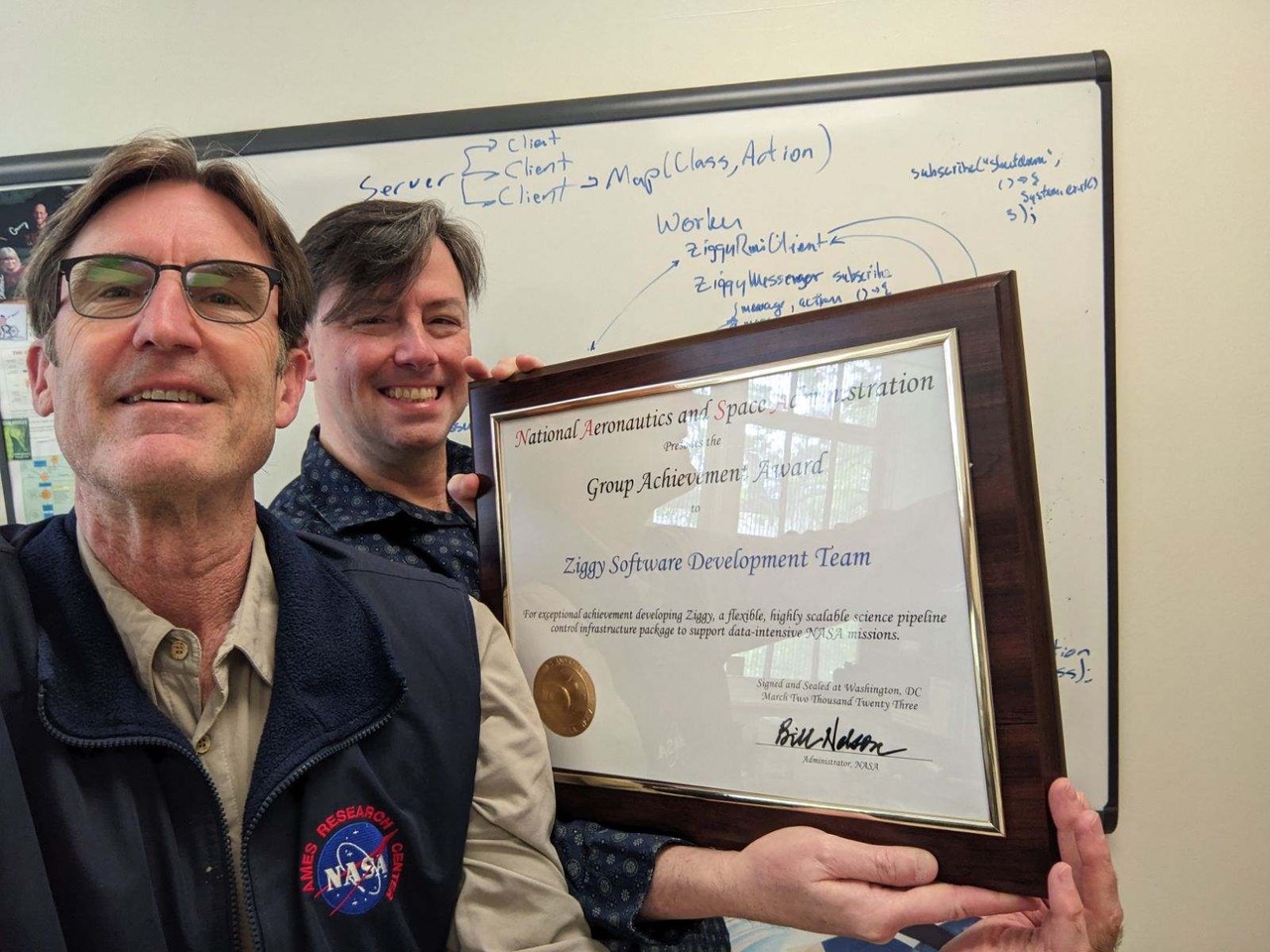
In a recent ceremony, NASA Ames Research Center (NASA ARC) acknowledged the remarkable accomplishments of the Ziggy Software Development team during the annual Presidential Rank & NASA Honor Awards event. The team includes Jeffrey Smith, Peter G. Tenenbaum and Bill Wohler from the SETI Institute and Chris Henze, Jon M. Jenkins, and Mark E. Rose from NASA ARC. The Group Achievement Award recognized their outstanding work on Ziggy, a highly scalable science pipeline control infrastructure package designed to support data-intensive NASA missions.
Ziggy, an evolved version of the data pipeline architecture initially created for Kepler and TESS, is a valuable tool for science data processing. The team enhanced the program to provide increased flexibility and is now utilized in other NASA missions. Additionally, Ziggy is open-source, further expanding its accessibility and usability.
Managing data analysis activities involving substantial amounts of data requires an effective pipeline management system. Without such a system, the integrity of the results may be compromised. Ziggy addresses this challenge by automating the data processing, ensuring uniformity, and eliminating concerns such as data subset omissions or changes in processing methodologies. As data volumes continue to grow, the significance of efficient pipeline management becomes increasingly critical. By utilizing Ziggy, scientists can focus on their data analysis, results, and publications, rather than investing time and effort in developing and maintaining pipeline management software.
Ziggy serves as a comprehensive pipeline management system, encompassing all aspects except for the actual scientific analysis software. Its functionalities include executing algorithms on the data, handling logging messages, seamlessly progressing to the next step after completing the current phase, managing exceptions, providing user interfaces for monitoring and control, maintaining a datastore for inputs and results, ensuring data persistence, and much more.
Initially developed as the pipeline infrastructure (PI) for processing data from NASA's Kepler mission, Ziggy was later adapted for the Transiting Exoplanet Survey Satellite (TESS) as an advanced version named Spiffy ("Science pipeline infrastructure for you"). Over time, the team recognized the opportunity to enhance Spiffy into a software package capable of managing colossal data volumes efficiently. This evolution led to the development of Ziggy.
Ziggy is now available as an open-source package, accessible at https://github.com/nasa/ziggy. Its user-friendly nature, scalability, and ability to handle large data volumes make it an invaluable resource for scientists engaged in data-intensive NASA missions.






